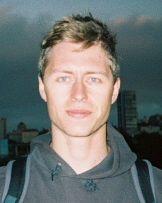This seminar took place on Wednesday 17 November 2021.
This talk will share some reflections on my experience as an expert witness, in particular about use of computational modelling in legal argument. A civil case or arbitration is decided ‘on the balance of probability’. But what does it take to ‘prove’ a claim to the satisfaction of a panel of judges on the basis of predictive modelling?
I will explain the role and responsibilities of scientific experts and the process of giving evidence. I will discuss the epistemic value of physics-derived computational modelling in that process.
This discussion will be illustrated with generic examples informed by my own research experience in development of physics-based engineering models and high performance computation for ignition, combustion, explosion, cryogenic and multi-phase flow processes, and energy and propulsion systems for sea, land, and air.
Edward S. Richardson is an Associate Professor within Engineering and Physical Sciences at the University of Southampton.
He leads research into high-fidelity computational modelling of thermal and fluid processes in propulsion and energy conversion systems. Edward’s research uses data generated with the world’s largest supercomputers to develop design methods for safe, efficient and innovative application of alternative fuels, including hydrogen. His research has been supported by the UK’s EPSRC, the European Union, the US Department of Energy, and through industrial collaboration in the aerospace, maritime and automotive sectors. Richardson is Director of the EPSRC Centre for Doctoral Training in Next Generation Computational Modelling.

Prior to joining the University of Southampton in 2010, Edward undertook three years of post doctoral research at the Combustion Research Facility, Sandia National Laboratories, California, and completed Marie Curie Early Stage Research Training at the European Centre for Research and Training in Advanced Scientific Computation (CERFACS) in Toulouse, France. Richardson received his Ph.D. in Mechanical Engineering from Cambridge University in 2007.
This seminar took place on campus and online on Wednesday 17 November 2021, starting at 13:00. It was scheduled for 1.5 hours to allow some time for discussion/questions after the presentation.
